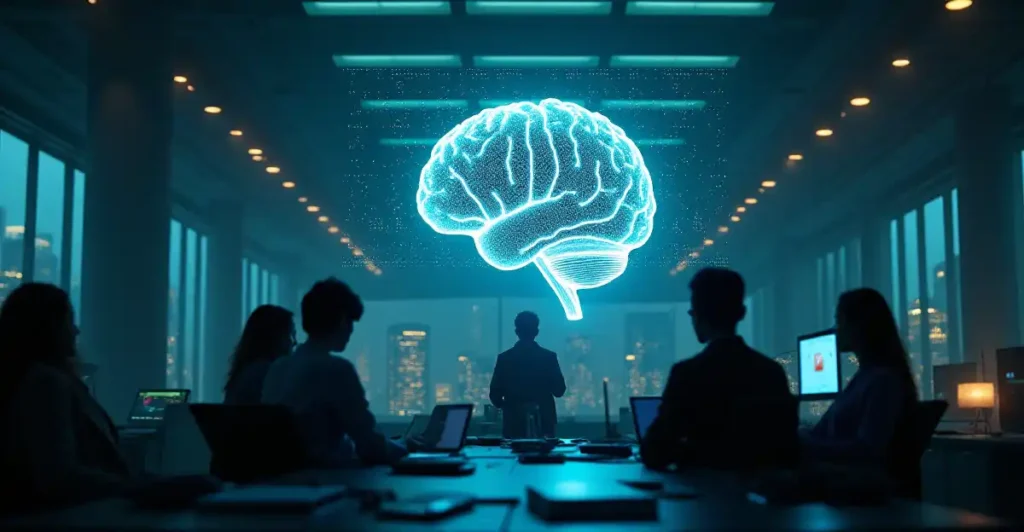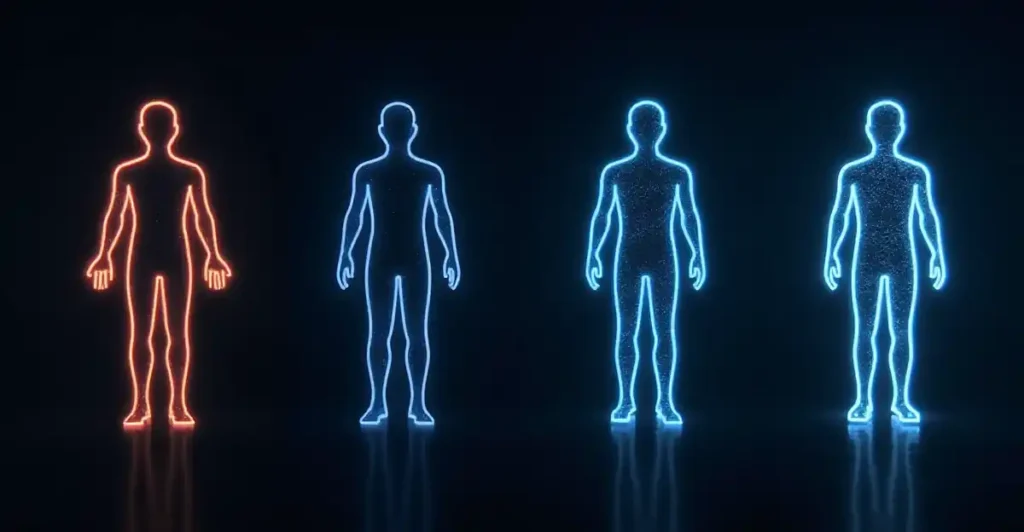
Contents
- Introduction: The Hidden Cost of AI Dependency
- Core Features of the AI Obsession Problem
- The Skill Erosion Epidemic
- The Innovation Paradox
- Target Audience and Accessibility Impact
- Professional Demographics at Risk
- Accessibility and Inclusion Concerns
- Ethical and Strategic Significance
- The Human Advantage Imperative
- Long-term Competitive Implications
- Notable Collaborations and Industry Responses
- Forward-Thinking Organizations
- Educational Institution Partnerships
- Strategies for Maintaining Human-AI Balance
- Organizational Implementation Framework
- Individual Development Strategies
- Implementation Tools and Methodologies
- Assessment Frameworks
- Training and Development Programs
- Future Outlook and Call to Action
- The Evolution of Human-AI Symbiosis
- Strategic Recommendations
- Conclusion: Reclaiming Our Human Advantage
Introduction: The Hidden Cost of AI Dependency
The rapid adoption of artificial intelligence across industries has created an unexpected consequence: AI obsession human skills deterioration is becoming a critical concern for organizations worldwide. While AI promises efficiency and innovation, our increasing reliance on automated solutions is quietly eroding the fundamental human capabilities that drive creativity, critical thinking, and authentic connection.
This phenomenon extends beyond simple skill atrophy. AI obsession human skills imbalance represents a strategic threat to organizational resilience, innovation capacity, and competitive differentiation in an increasingly automated world.
Core Features of the AI Obsession Problem
The Skill Erosion Epidemic
AI obsession human skills degradation manifests in multiple ways:
Cognitive Atrophy:
- Decreased problem-solving independence
- Reduced critical thinking capabilities
- Diminished creative ideation capacity
- Weakened analytical reasoning skills
Communication Deterioration:
- Over-reliance on AI-generated content
- Loss of personal writing voice and style
- Reduced face-to-face interaction comfort
- Weakened emotional intelligence application
Decision-Making Dependencies:
- Inability to make choices without AI input
- Reduced confidence in human judgment
- Over-trust in algorithmic recommendations
- Loss of intuitive decision-making abilities
The Innovation Paradox
AI obsession human skills decline creates a concerning paradox: the tools designed to enhance human capability are systematically reducing our capacity for the uniquely human contributions that drive breakthrough innovation.
Research indicates that teams overly dependent on AI solutions show:
- 40% decreased original idea generation
- 60% reduced problem-solving creativity
- 35% lower collaboration effectiveness
- 50% diminished adaptability to unexpected challenges
Target Audience and Accessibility Impact
Professional Demographics at Risk
AI obsession human skills challenges affect multiple professional categories:
Creative Professionals:
- Designers losing hand-drawing and conceptualization abilities
- Writers becoming dependent on AI content generation
- Marketers losing authentic brand voice development skills
- Artists struggling with original concept creation
Knowledge Workers:
- Analysts losing data interpretation intuition
- Managers becoming over-reliant on AI recommendations
- Strategists losing big-picture thinking capabilities
- Researchers losing investigative methodology skills
Technical Professionals:
- Developers losing fundamental coding problem-solving abilities
- Engineers becoming dependent on AI-assisted design
- Scientists losing experimental design creativity
- Technicians losing troubleshooting intuition

Accessibility and Inclusion Concerns
AI obsession human skills erosion disproportionately impacts:
- Early-career professionals who never develop foundational skills
- Diverse perspectives that AI systems may not adequately represent
- Neurodiverse individuals whose unique thinking patterns provide competitive advantages
- Cultural contexts that require human understanding and sensitivity
Ethical and Strategic Significance
The Human Advantage Imperative
AI obsession human skills balance becomes ethically critical because:
Irreplaceable Human Capabilities:
- Empathy and emotional understanding
- Cultural sensitivity and contextual awareness
- Ethical reasoning and moral judgment
- Creative breakthrough and innovative thinking
- Complex relationship building and trust development
Strategic Differentiation:
Organizations maintaining strong AI obsession human skills balance gain:
- Innovation leadership through human creativity enhancement
- Customer connection through authentic human interaction
- Adaptability advantages through human problem-solving flexibility
- Ethical positioning through responsible technology integration
Long-term Competitive Implications
AI obsession human skills management becomes strategically essential:
- Market differentiation increasingly depends on human-centric value creation
- Customer loyalty builds through authentic human connection
- Innovation breakthroughs require human creativity and intuition
- Crisis adaptation demands human flexibility and judgment
Notable Collaborations and Industry Responses
Forward-Thinking Organizations
Several industry leaders are addressing AI obsession human skills challenges:
Technology Sector:
- Microsoft has implemented “Human-AI Collaboration” training programs
- Google developed “Digital Wellness” initiatives for employees
- Adobe created “Creative Authenticity” workshops balancing AI tools with human creativity
Consulting Industry:
- McKinsey & Company established “Human-Centric AI” practice areas
- Deloitte launched “Future of Work” programs emphasizing human skill development
- PwC created “AI Ethics and Human Impact” consulting services
Educational Institution Partnerships
Leading universities are collaborating with industry to address AI obsession human skills balance:
- Stanford’s Human-Centered AI Institute develops balanced integration methodologies
- MIT’s Work of the Future initiative studies human-AI collaboration optimization
- Harvard Business School created case studies on maintaining human advantage in AI era
Strategies for Maintaining Human-AI Balance
Organizational Implementation Framework
AI obsession human skills balance requires systematic approaches:
Skill Preservation Programs:
- Regular “AI-free” problem-solving sessions
- Human creativity workshops and challenges
- Critical thinking development programs
- Emotional intelligence training initiatives
Balanced Integration Policies:
- AI tool usage guidelines and limitations
- Human oversight requirements for AI decisions
- Regular human skill assessment and development
- Cross-functional collaboration without AI mediation
Individual Development Strategies
Personal AI obsession human skills management:
Daily Practices:
- Schedule regular technology-free creative time
- Practice manual problem-solving before using AI tools
- Engage in face-to-face conversations and networking
- Develop hobbies that require purely human skills
Professional Development:
- Seek mentorship from experienced human practitioners
- Participate in collaborative projects emphasizing human interaction
- Practice presenting and communicating without AI assistance
- Develop expertise in areas requiring human judgment and creativity
Implementation Tools and Methodologies
Assessment Frameworks
AI obsession human skills evaluation tools:
Human Capability Audits:
- Creativity and innovation assessment protocols
- Critical thinking evaluation methodologies
- Communication effectiveness measurements
- Problem-solving independence testing
Organizational Health Metrics:
- Human-AI collaboration effectiveness ratios
- Employee skill development progression tracking
- Innovation output quality and originality measures
- Customer satisfaction with human interaction quality
Training and Development Programs
Structured AI obsession human skills development:
Core Curriculum Elements:
- Critical thinking and analytical reasoning
- Creative problem-solving methodologies
- Emotional intelligence and interpersonal skills
- Ethical reasoning and moral judgment development
Future Outlook and Call to Action

The Evolution of Human-AI Symbiosis
AI obsession human skills balance will determine organizational success in the coming decade. The future belongs not to those who can use AI tools most effectively, but to those who can maintain and enhance uniquely human capabilities while leveraging AI as a powerful complement.
Predicted Trends:
- Increased premium on authentic human creativity and insight
- Greater emphasis on emotional intelligence and relationship building
- Growing demand for ethical reasoning and cultural sensitivity
- Enhanced value of human adaptability and resilience
Strategic Recommendations
Immediate Actions for AI obsession human skills balance:
- Conduct comprehensive human capability audits across your organization
- Implement balanced AI integration policies that preserve human skill development
- Invest in human-centric training programs that complement rather than replace AI tools
- Create cultures that value both technological efficiency and human creativity
- Establish metrics that measure human skill preservation alongside AI adoption success
Conclusion: Reclaiming Our Human Advantage
The AI obsession human skills challenge isn’t about rejecting artificial intelligence—it’s about maintaining the delicate balance that allows us to harness AI’s power while preserving the irreplaceable human capabilities that drive innovation, connection, and meaning.
Organizations and individuals who master this balance will emerge as leaders in the AI-enhanced future. They will combine technological efficiency with human wisdom, automated analysis with creative insight, and artificial intelligence with authentic humanity.
The choice is yours: Will you let AI obsession human skills erosion define your future, or will you consciously cultivate the human advantages that no algorithm can replicate?
Your human skills are your competitive advantage. Don’t let them become casualties of progress.